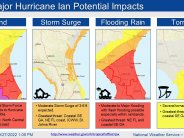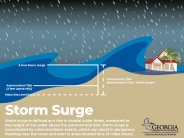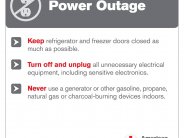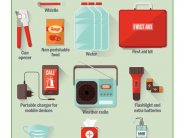Hurricane Preparedness
As a coastal city, Brunswick is at risk for hurricanes formed in the southern Atlantic Ocean, Caribbean Sea and Gulf of Mexico. Hurricanes can cause catastrophic damage and upend daily life. Every resident must understand the risks of hurricanes through planning, prevention, and preparedness. Planning is being informed of a weather-related emergency and understanding the resources and supplies needed to successfully "weather the storm". Prevention is securing your property, home, or business to lessen the impact of weather-related damage; such as boarding windows and using sandbags. Prevention also includes having the necessary non-perishable items such as food, medical supplies, and communication devices in the event of prolonged outages. Preparedness is understanding your options and being ready to act-at-moments-notice during both unexpected and expected weather-related emergencies through prior planning and prevention efforts.
Emergency planning considerations
- Have a communications plan. Plan includes both employee and family contact information. How do we communicate when the cell towers are down or overwhelmed.
- Evaluate critical needs. Who absolutely needs to be on the job, how do they get to the job, how do you sustain them? Which local government vehicles are road capable for the emergency? Are your operators trained in driving in adverse conditions? What infrastructure or technology needs to be active, what can you do without , what are the priorities?
- Coordinate with community partners, hospitals, elder care locations, schools, non governmental organizations that also respond. Coordinate with adjacent local governments.
- Build disaster supply kits for vehicles, offices, and facilities, that provide for basic food, water, and other supplies (flashlights, blankets, etc).
- Have a business continuity plan for during and post emergency.
- What training can you do now that could help? Cold injury prevention and awareness! Winter driving considerations!
- Test and evaluate your plans. Will the plans do what we think they will do?
- If you already have a plan, review and update. If you do not have a plan, now is the time to create one.
Emergency planning is a continuous process. We can become complacent when no emergency exists.





